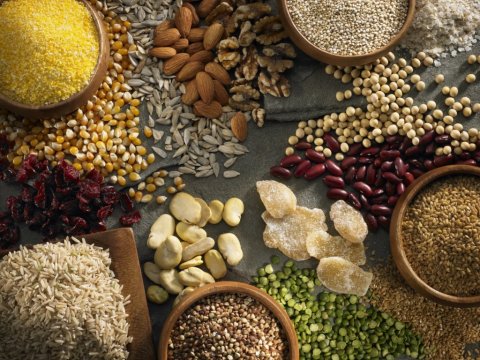I was diagnosed with Gluten Intolerance in January 2018. I had lost 12 kilos within three weeks and was wondering what was going on. Finally, once I did the required blood tests and underwent medical procedures, the problem was determined. My nutrition changed ever since accordingly. See, I used to suffer from lots of injuries. I also had continuous gastronomic problems and felt cold most of the time. And I had no clue it was due to my gluten intolerance. Once I turned 22, I faced the digestive symptoms, followed a Gluten-Free Plan and my life changed for the better ever since! Kindly note, that I am in no way pointing out Gluten as the enemy, it is definitely not, it is a protein that is found in wheat, rye, and several other foods. Gluten does not work for my body. Yet, if it can work for you, keep consuming it.
Difference between Gluten Intolerant and Celiac Disease Patient
Gluten intolerance has many levels, the most serious is known to be Celiac Disease. In this case, things become trickier. Hence, if you have celiac disease, the whole kitchen in the house should be gluten-free since the patient will be subject to cross-contamination between products and will suffer accordingly. Furthermore, cross-contamination can reach packaged products! Therefore, a gluten-free product should have double packaging so that when it is placed on the shelves in supermarkets, it does not get any cross-contamination. Thus, shops should have dedicated areas for gluten-free customers. When it comes to the gluten-intolerant group such as myself, it is a bit easier. For instance, I can cook a Gluten-Free meal and a normal meal in the same kitchen noting that they should not touch and should be cooked separately. In this case, you are safe and good to go.
The main takeaway from my personal experience
Well, this article is different, since I am speaking of pure experience, therefore my biggest lessons through this journey are the following:
- Don’t reduce carbs: when I first got diagnosed, I was not still educated on what works best and what does not. But what I realized soon was that I was eating too few carbs, and it made sense because Gluten is found in bread and wheat, some types of rice, etc. And many people suffering from gluten intolerance tend to eat fewer carbs, but you don't have to. You can substitute regular carbs with the following: cornbread, grilled potato, sweet potatoes, cooked white rice, quinoa, etc.
- When consuming flour: get the one including gluten-free corn, rice, buckwheat, and coconut flour
- Protein is not the problem: thankfully, most animal protein sources including lean chicken, beef, tuna, eggs, etc. are all gluten-free. You can purchase gluten-free protein supplements as well, which is definitely awesome!
- Type of cooking: always watch out for how the food is cooked. For instance, if you find chicken with crisp on it, it definitely contains gluten, so avoid it. Always ask and don’t be shy, especially in restaurants, and let them know that you are intolerant and it is a medical case.
- Sauces: this can be tricky, but always look for gluten-free sauce.
- Alcohol: stay away from Beer and Whiskey, they contain rye. As for wine, they are gluten-free most of the time, but it's best to keep checking the labels.
My final take: whether you are gluten intolerant or suffer from celiac disease, there are ways to still enjoy food, while being careful not to consume the ones that your body cannot process.
Pierre, the Healthy Foodie

